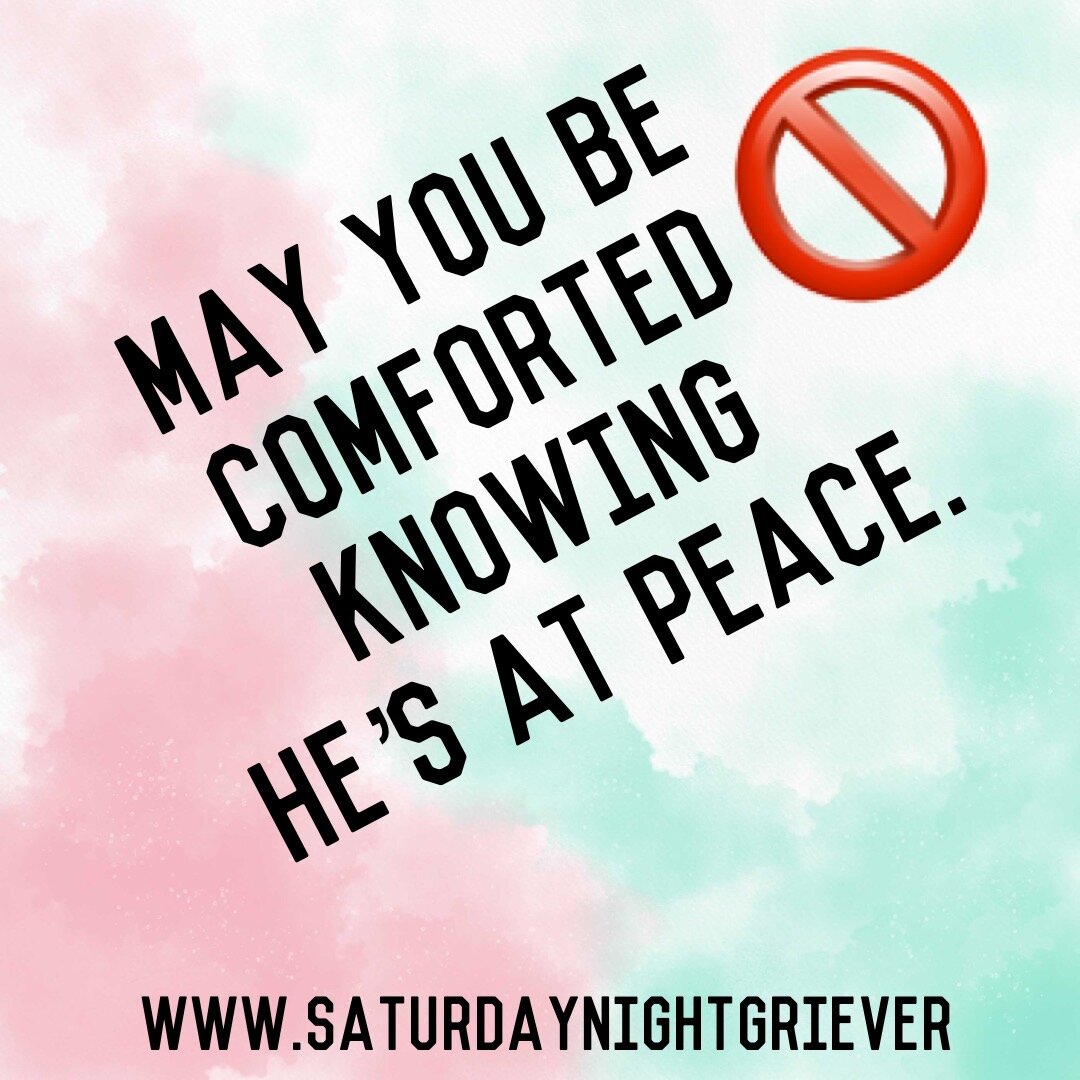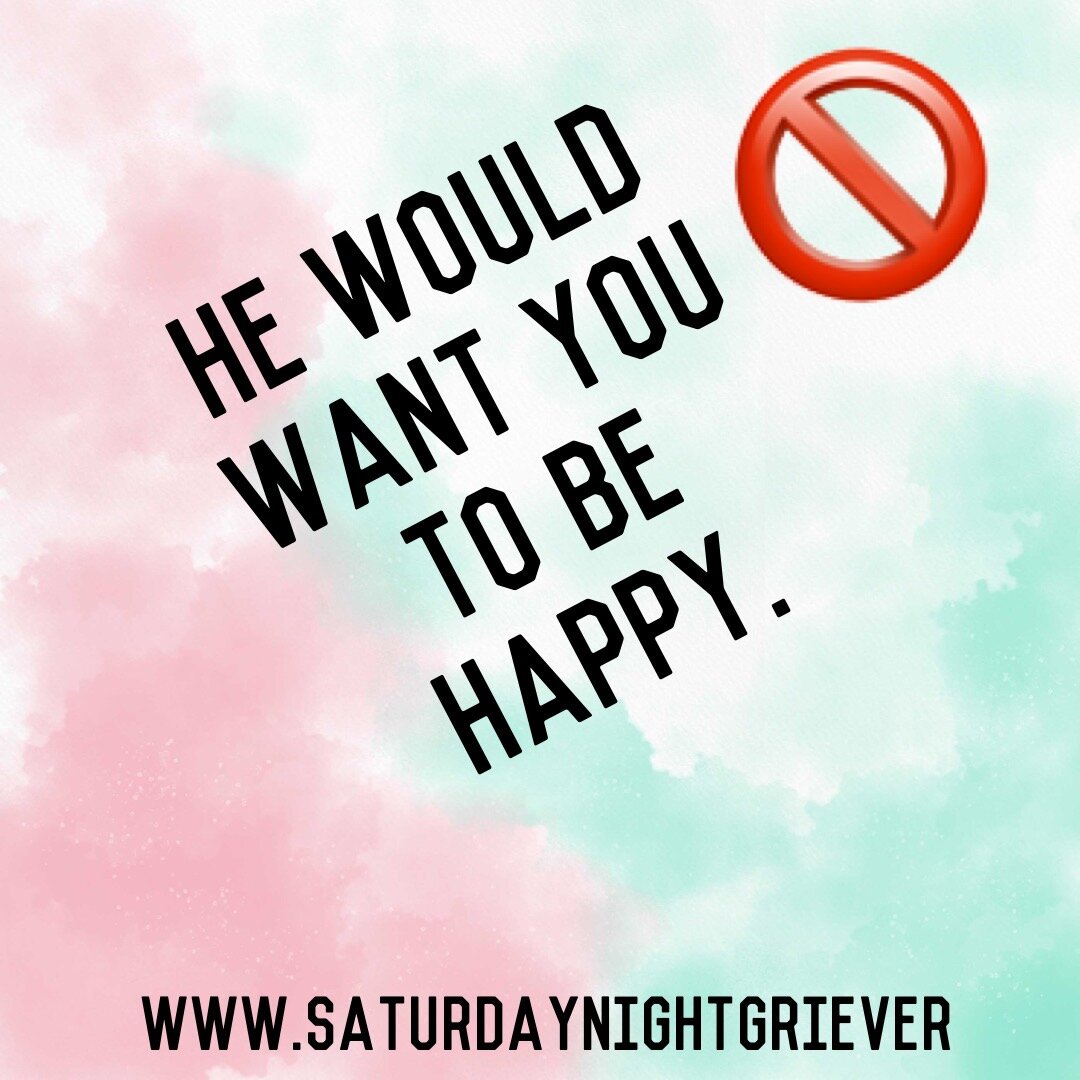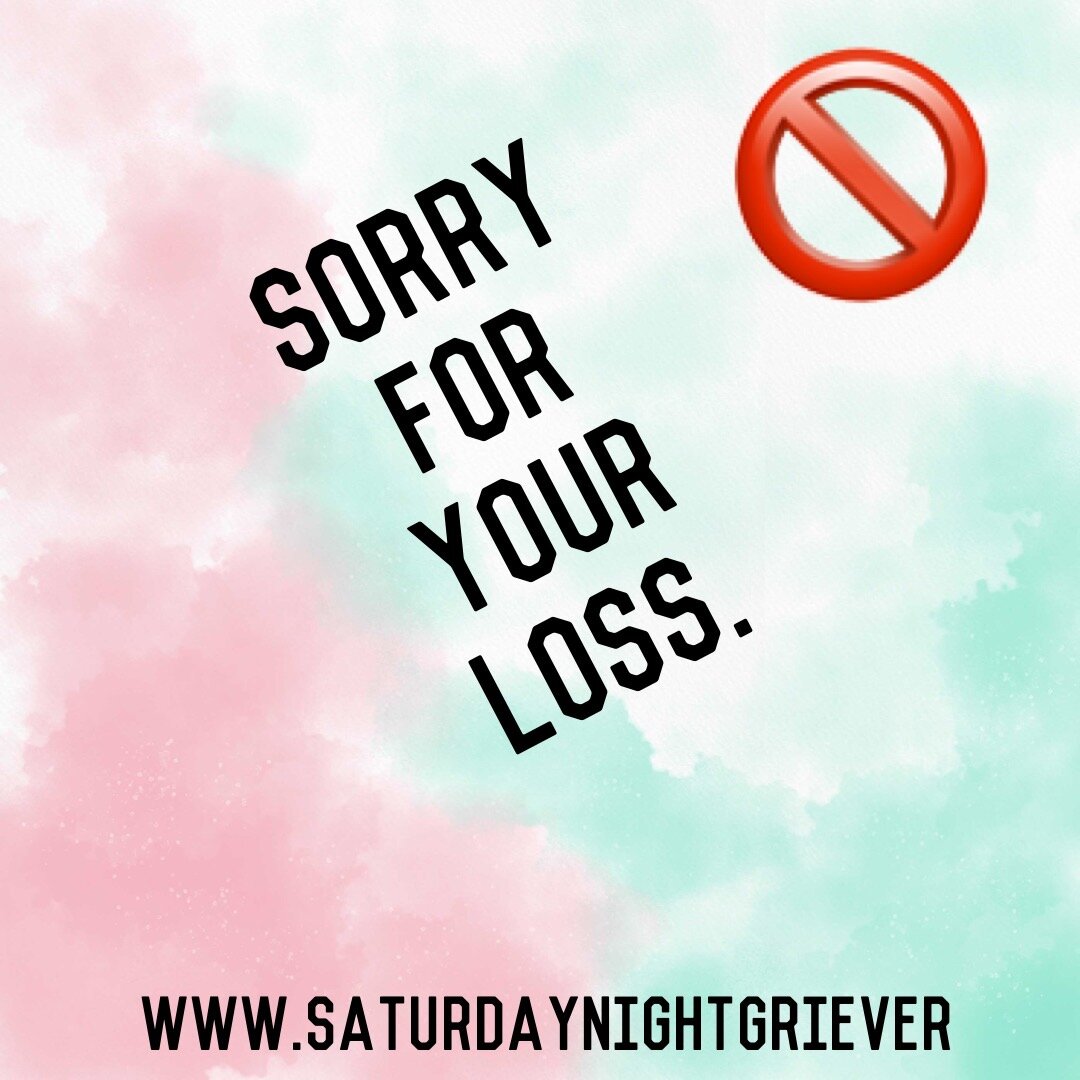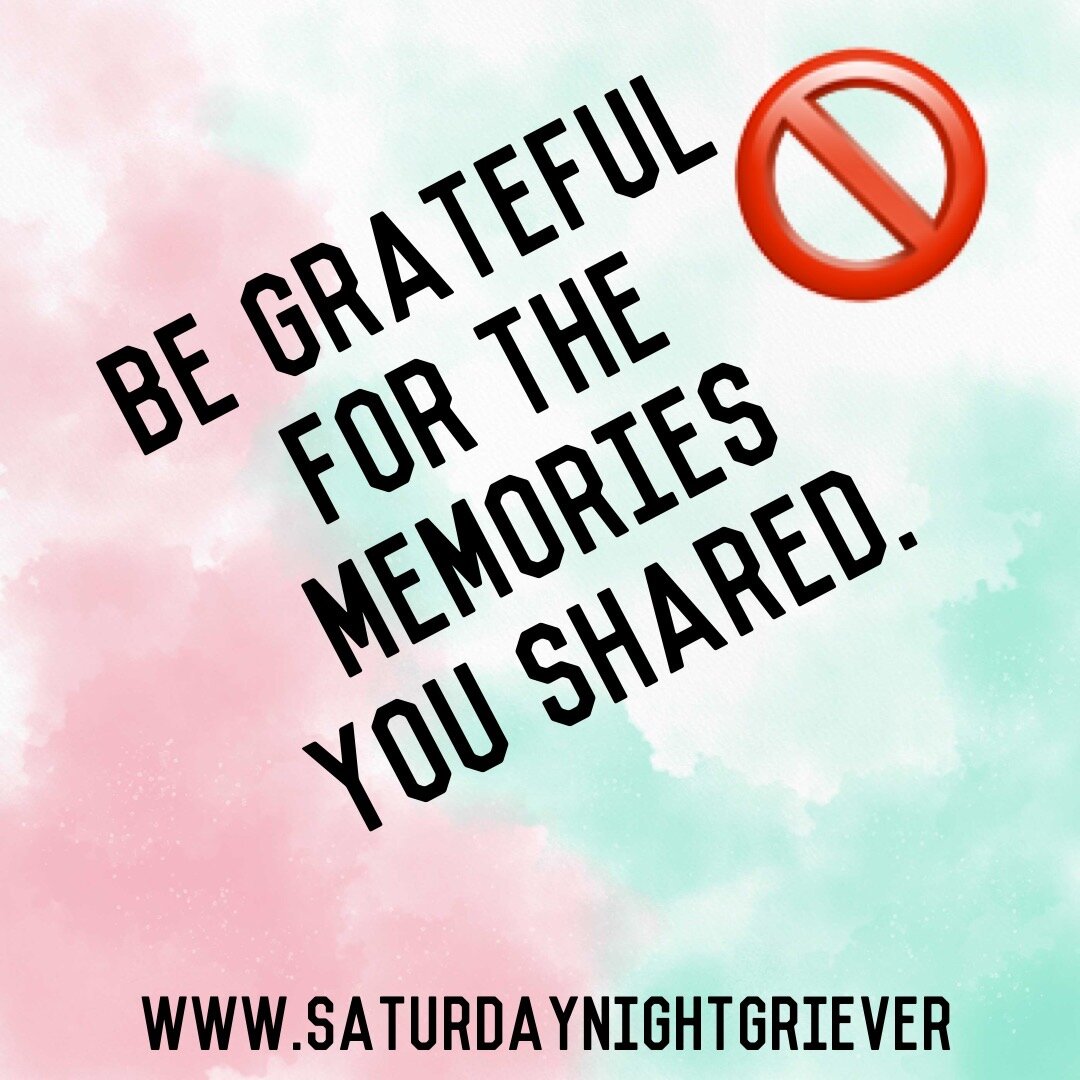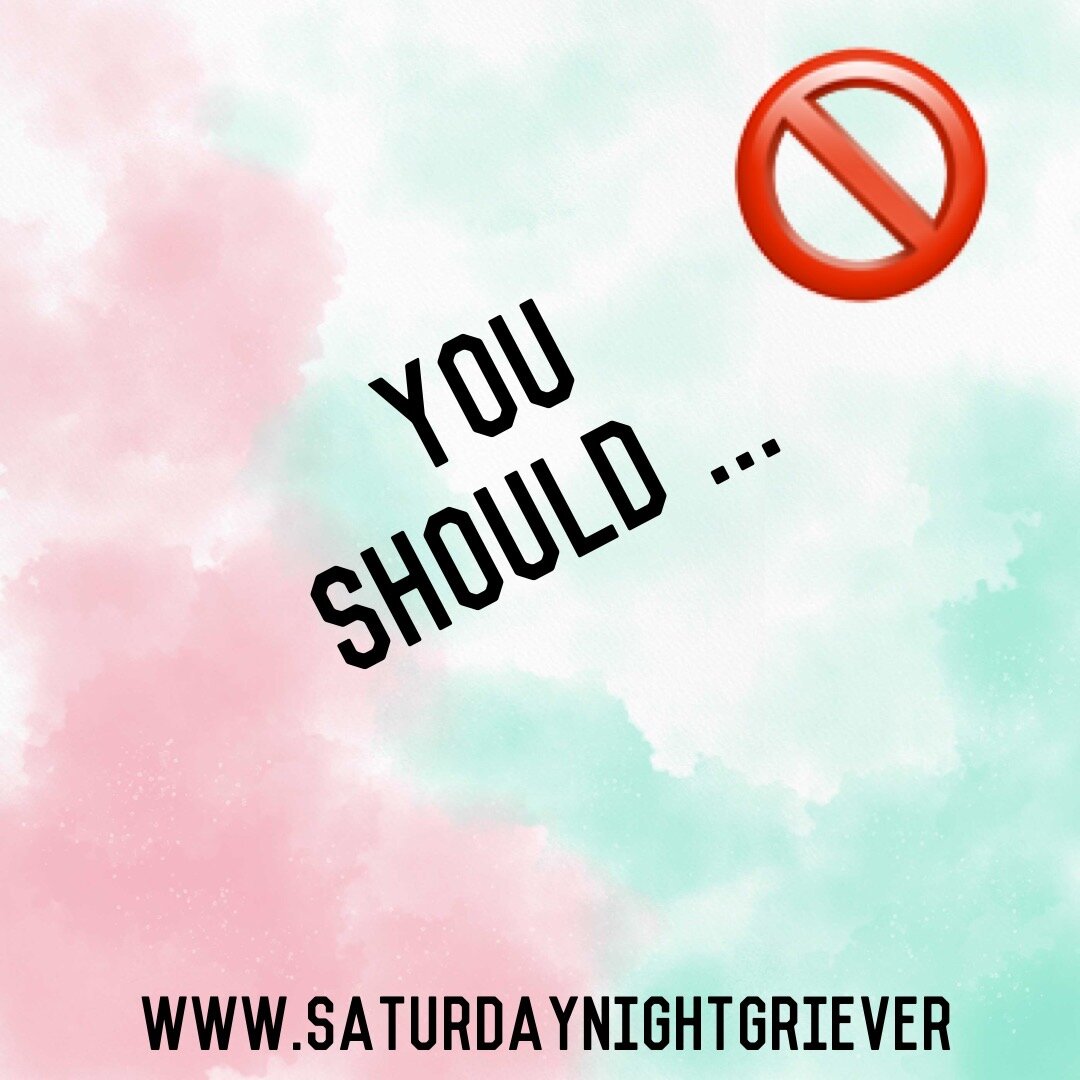I operate under the belief that no matter how clumsy, misguided, unsolicited or unhelpful grief support appears, any grief support is better than no grief support — that is, I’d rather have someone say the wrong thing than say nothing at all. A gross platitude or inconsiderate piece of advice is, to me, better than silence. That said, there are certain grief phrases that really get under my skin. These are a few of my least favorite.
1.) May you be comforted knowing he’s at peace.
I find no comfort in this phrase whatsoever. Firstly, it is a religious phrase and I’m not a religious person. Secondly, even the most devoutly religious person in the world may not find comfort from this phrase because their person just died and there is no comfort in that. (Side note: Being neither religious nor atheist is a tricky place to be after someone dies. People on both ends of the spectrum love to share their beliefs with you in the guise of “comfort” regardless of how you yourself may believe, hope, fear, wish, or think about the afterlife.) Society as a whole often tells us that we’re allowed to be sad for a little bit of time after someone dies — but not too much. It feels like the people who give platitudes like this are saying: Actually, it would be great if you wouldn’t spend any time being sad at all and if instead you’d shift immediately into finding all the things about your person’s death that are beautiful and shiny and wonderful, regardless of how this may or may not fit with your personal belief system. To me this one always feels like it’s in the vane of “He’s in a better place now” or “At least he’s no longer suffering,” which thank goodness I never received personally but I know far too many people in grief do.
2.) He would want you to be happy.
Oof. It’s amazing how many people suddenly become experts in knowing exactly what your dead person would want for you. I spent 36 years in a very close father-daughter relationship with him, but somehow it’s the people who saw him once a year that know exactly what he would say to me. Would my dad want me to be happy? Yes, of course. (Please file under: Duh. Also: Unhelpful.) Would he want me to be immediately happy after his death if it meant suppressing all my feelings of sadness and anger and loneliness and rage? Absolutely not. “They would want you to be happy” always feels so trite to me. My dad would want me to feel however I need to feel to get through the unbearable pain of losing him. And even if he didn’t, I would want to feel that way. I would not want to force happiness on myself, and I would also want to allow myself to feel happy when that is how I feel — In my own way and on my own schedule, not because I’m being asked to. I like to take a page from my three-year-old on this one, who absolutely refuses to perform — and why should she? — when people try to request that of her. No, she does not want to sing you a song on the spot. No, I do not want to force myself to spontaneously be happy for your comfort. And because I’m the one going through the grief, I’m the one who gets to actually choose.
3.) Sorry for your loss.
This one bugs because it feels too generic and it feels too small. Like, I feel like someone should say “Sorry for your loss” to me after I lose a literal object, like a phone or a sweatshirt. Losing someone to death is so much bigger than just “loss.” Also, SAY THE PERSON’S NAME. If you don’t know the person’s name, say their relationship to that person. The one sympathy card I received that said “Sorry for your loss” sat with me so wrong. The ones that said “I’m sorry your dad died” or “I’m sorry to hear about Martin” sat with me much better. (I think I may be in the minority in choosing this particular one as a pet peeve, but that’s okay because grief in an individualized experience for everyone.)
4.) Be grateful for the memories you shared.
Aghhhhh! People, I really hate this one. It’s another one that’s telling you how to feel. It’s another one that’s telling you to be positive in the face of one of the most negative things that’s ever happened to you. It’s so prescriptive in how you should be handling your grief — why be sad that your favorite person on earth just died when you could feel grateful for all the years you did share together? This one always feel like it has an element of putting me in check somehow — like how would the people whose dad died in childhood or their teens or twenties feel if they had all the years that you did with your dad — why can’t you just be grateful for what you did get? (It’s another one of those Well, Duh ones where it’s like: Okay yes, people who lost their dad earlier than mine had it even worse AND I still lost my dad too soon AND I still feel bad about it.) I also feel like it’s a really simplistic view of both grief and gratitude to suggest that one can’t exist without the other. Actually, I can be extremely sad that my dad is gone AND grateful for all the time we had together. Being grateful doesn’t make me any less sad, angry, lonely, or lost — so stop telling me that it’s the solution to all my problems.
5.) You should …
Any sentence that starts with these words in the context of grief support is not going to end well. Unless I hired you to be my licensed grief therapist or I directly asked you for your guidance, I don’t want to hear what you think I “should” do in grief. Bottom line: I should do what I need to do for me and YOU should figure out a way to say what you want to say without being so prescriptive or instructive. Oddly enough, most grieving people are not looking for a lecture on top of everything else.
In grief and with love,
KrissyMick
Photos Credits, All: Kristen Forbes

